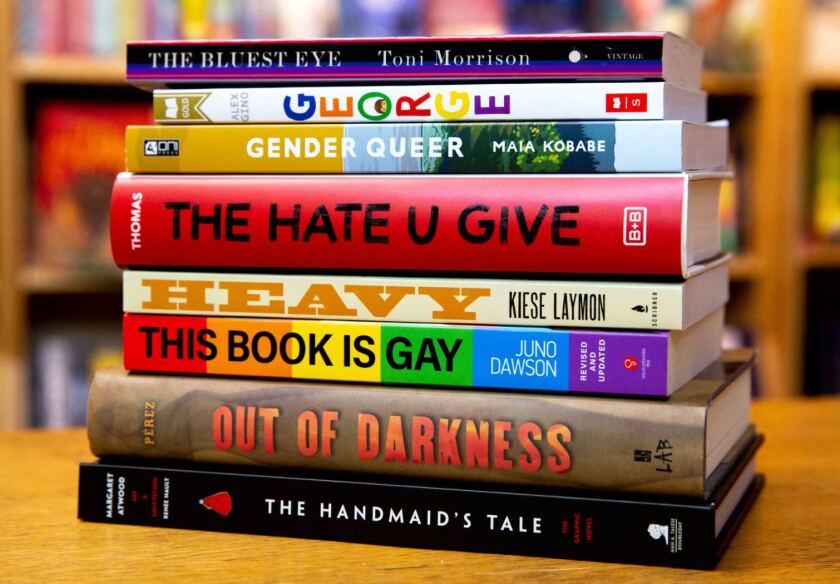“Book bans are about censorship, marginalizing people, marginalizing ideas and facts,” said Illinois Gov. J.B. Pritzker at a signing ceremony for the bill, which took place in a library. “Regimes ban books, not democracies.”
An analysis by PEN America identified nearly 900 unique titles that had been targeted for bans during the first half of the 2022-2023 school year. Texas, Florida, Utah and South Carolina were most active. The list includes books banned from libraries and/or classrooms as well as books removed pending further investigation of their content.
Blurry Edges
“Overwhelmingly, book banners continue to target stories by and about people of color and LGBTQ+ individuals,” PEN noted, a trend consistent with the focus in some states on restricting classroom discussion and lessons regarding race and gender. However, the list compiled by PEN includes many titles targeted by districts that suggest that culture wars can have blurry edges.
Chaucer’s Canterbury Tales is on the list, as are titles as seemingly unrelated as 20,000 Leagues Under the Sea, Blues: A History of American Music and Discovering Mythology. Books about the works of artists such as Cezanne, Marc Chagall, Leonardo da Vinci, Manet and Edward Hopper are also included, as are history texts about D-Day, the Holocaust, Brown v. Board of Education, Eleanor Roosevelt and Martin Luther King Jr.
The bill Pritzker signed requires the state librarian and state library to adopt the Library Bill of Rights from the American Library Association. This forbids exclusion or removal of materials because of the “origin, background or views” of those who created them or because of “partisan or doctrinal disapproval.”
Libraries that violate these guidelines risk losing state funding.
Progress and Crosswinds
“History is being made in this room right now,” said American Library Association President Tracie Hall at the signing. Hall underscored the sense of relief within the library community that a state leader had stood behind them.
“It is heartening to see that the state of Illinois is taking legislative measures to protect the essential right of intellectual freedom,” said Brooks Rainwater, President and CEO of the Urban Libraries Council. “The ability of Americans to learn from and engage with different perspectives is essential to our democracy, and all voices — particularly those of LGBTQ+ authors and authors of color — must be heard for this to happen.”
New Jersey may be the next state to pass legislation to prevent book bans, but crosswinds remain. On the same day that Gov. Pritzker signed his state’s bill, Texas Gov. Greg Abbott signed a bill prohibiting schools from buying books that are "sexually explicit,” “pervasively vulgar” or “educationally unsuitable."
The legislation prohibits library vendors from selling to schools if they have not reviewed their material and provided “ratings” that enable buyers to identify titles that do not meet the new state guidelines. As has been the case with other efforts by state legislatures to restrict material available to students, a lack of precise definitions in the Texas law is likely to create confusion and potential for overreaction.
The complete signing ceremony for the library bill.











